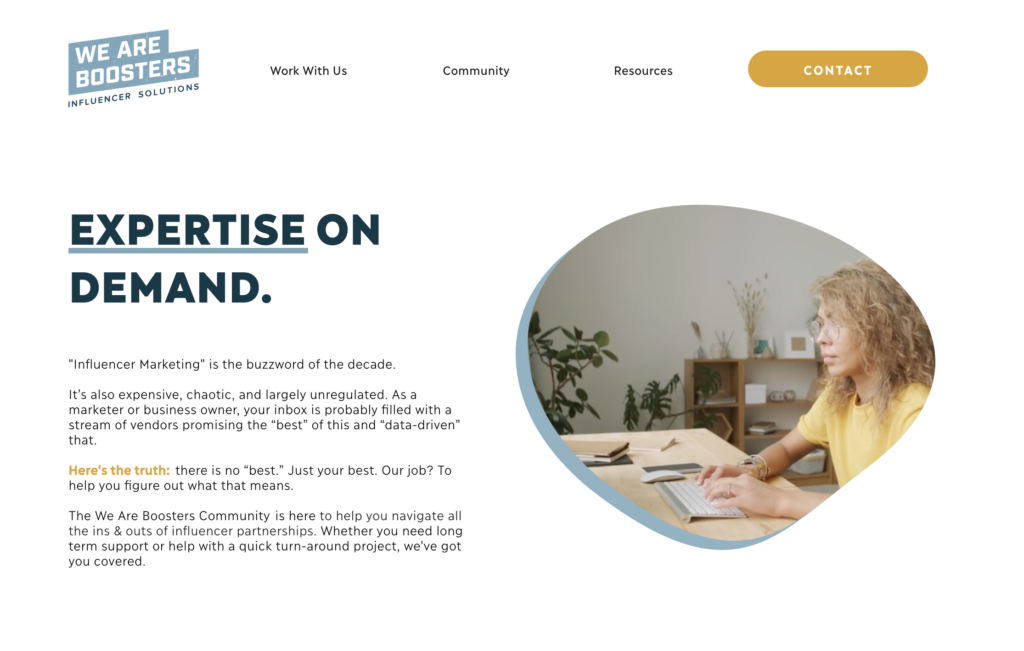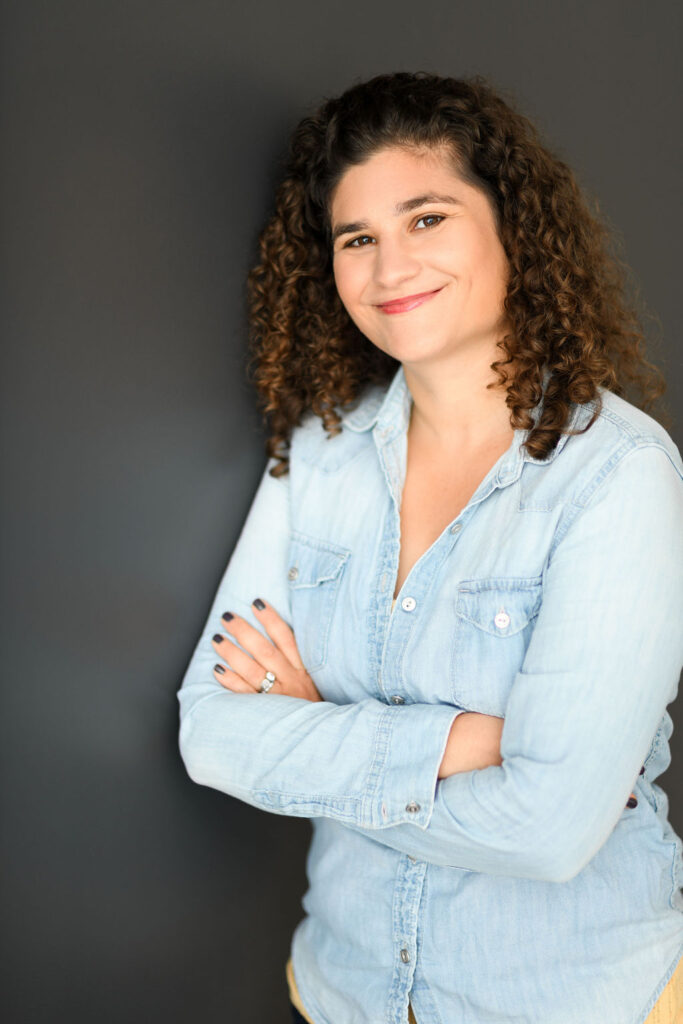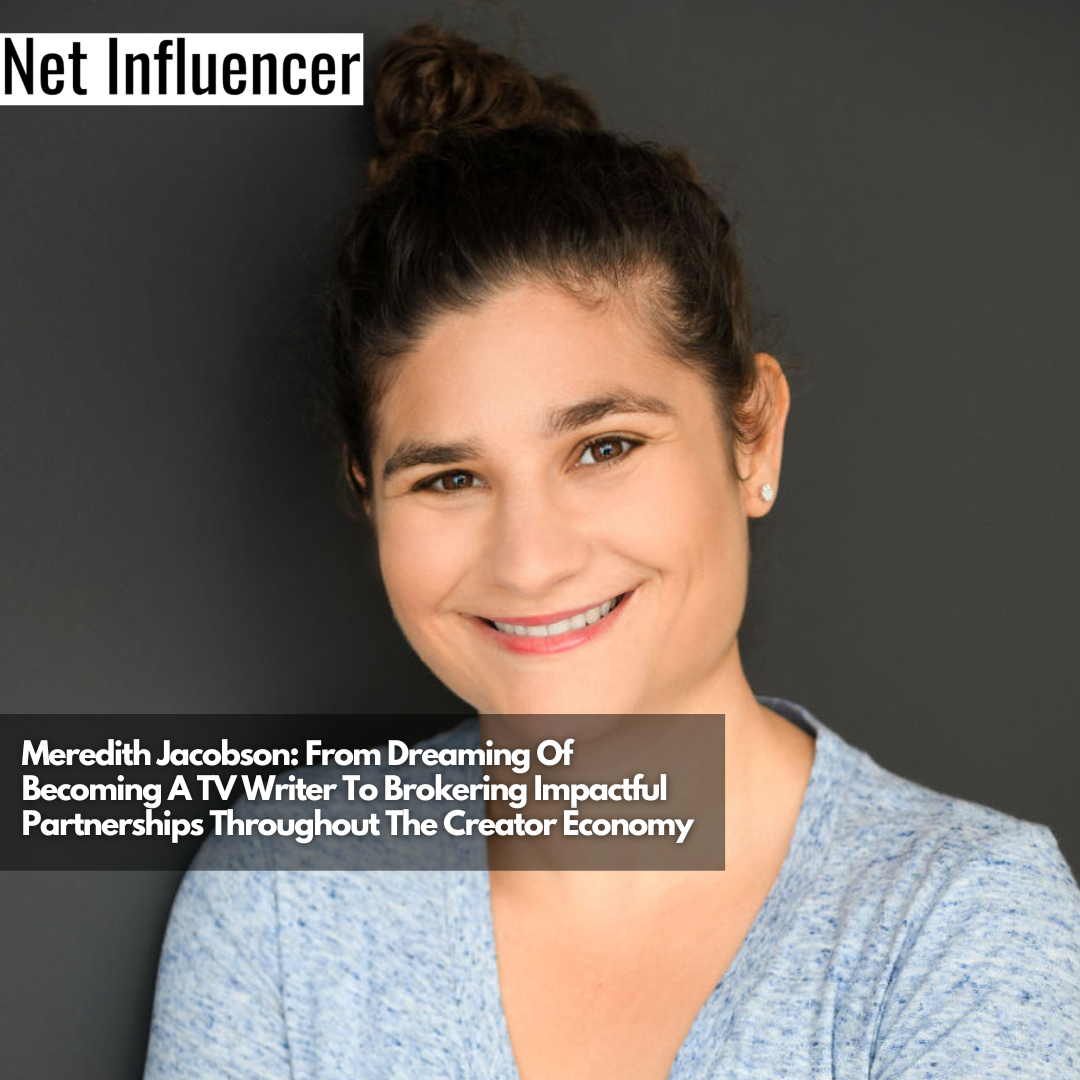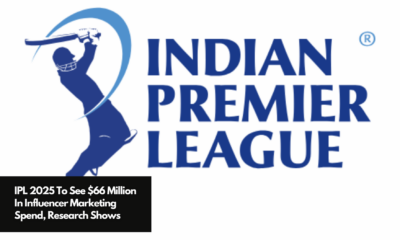Agency
Meredith Jacobson: From Dreaming Of Becoming A TV Writer To Brokering Impactful Partnerships Throughout The Creator Economy
Working in the different areas of influencer marketing made Meredith see how chaotic the industry was. Her firsthand experience with different companies and individuals in the industry motivated her to start We Are Boosters. While she struggled to find clients at first, the growth of the influencer marketing industry during the pandemic catapulted her business and paved the way to its success.
Working in the different areas of influencer marketing, Meredith saw how chaotic the industry was. Her firsthand experience with different companies and individuals in the industry motivated her to start We Are Boosters. While she struggled to find clients at first, the growth of the influencer marketing industry during the pandemic catapulted her business and paved the way to its success.
Who is Meredith Jacobson?
Meredith Jacobson is a consultant in the influencer marketing industry and the Founder of We Are Boosters. We Are Boosters is a hub for freelancers in the industry, creating opportunities for collaboration, mentorship, and lead generation. The community is free for freelancers to join and participate in.

For businesses looking to hire from within the community, Meredith offers a white glove matching service based on each company’s need, timing, budget, and desired experience. Freelancers offer a wide range of services, but most commonly include strategy, casting, campaign execution, coaching vendor negotiations, content production, and more.
Tell us about your background and how it led you to found We Are Boosters.
Meredith Jacobson spent the first couple of years of her career in TV production, thinking it would get her closer to her dream of becoming a TV writer. But felt her growth potential was limited and was surrounded by frustrated older colleagues who felt the same.
After seeing what she saw, Meredith decided to pursue another career that was more fulfilling. She emailed everyone in her network that she was looking for a challenging and creative job and ended up working as an executive assistant in Studio71.

Meredith Jacobson worked with Studio71 and Branded Entertainment Network for about five years, which made her realize how chaotic, confusing, and all over the place the influencer marketing industry was.
She finally understood why brands and marketers are often frustrated in the industry. She says, “It had so much impact and possibility for good, real, measurable impact but has so many people taking advantage of the lack of education on both sides of influencers and marketers.”
She worked with Digitas for a year and then started her own consulting company in 2019. She had difficulties finding clients at first, but the shift in the influencer industry during the pandemic had people, who Meredith met earlier, come back to her. They showed their intention to run an influencer program and asked for Meredith’s expertise.
The demand for her services and the growth of influencer marketing made Meredith realize that her consultancy services have become a real business. From there, she created a centralized resource where influencers, marketers, brands, and agencies can find exactly the type of person they need — whether that’s somebody a junior focused on campaign execution or a senior leader for a short-term project.
What makes We Are Boosters different from other influencer marketing agencies?
Freelancers who offer consultancy through We Are Boosters have their own entities, like LLCs; some are employed full-time. The wide variety of talents available and their ability to work across different contexts are the biggest reasons why agencies and vendors continue to use We Are Boosters. This also creates opportunities for anyone to easily find influencers with the right background, as well as receive the support they specifically need.
How do you choose which influencers to work with?
Meredith Jacobson has a database of all freelancers, including their availability, where they’re based, levels of experience, general rates, case studies, vertical expertise, and the types of projects they’re open to. Meredith uses this information to determine which influencer to recommend to their clients.
What do you think is the biggest challenge in influencer marketing nowadays?
For Meredith, it’s marketers trying to look at influencer marketing similar to any other channel. This mindset prevents marketers from seeing that influencers run their own independent businesses and have the authority to make decisions as they see fit.
Nowadays, influencer marketing has become a broad industry, yet people still try to generalize it. Influencers today function as their own business unit and follow specific rules. For example, there are influencers willing to do a lot, while others won’t even consider them.
Meredith Jacobson adds, “I think every program is variable, and there’s a real desire to create benchmarks and create something that will simplify it. But it’s something that I don’t think can be simplified.”
How do you see the role of influencer marketing evolving in the next few years?
Meredith Jacobson believes influencer marketing will continue to grow. In the future, it’ll be about the balance of influencers figuring out where content creation fits into their lives and whether or not being a creator is a sustainable long-term career.
She expects to see influencers continue to thrive, iterate, and build lasting careers worldwide. But those who aren’t too dependent on social media platforms — ones who can offer something more outside of social media — and don’t burn themselves out will be the only ones who will succeed.
Additionally, Meredith thinks a huge area of growth in the industry will be for professionals being hired to add value to creator businesses beyond only seeking and negotiating brand deals. She could see this replacing commission-based pricing models for talent managers in many circumstances. As a result, influencers will successfully earn a reputation, which will parlay into them being able to build long-term careers.

Can you speak about the importance of authenticity in influencer marketing?
As someone exposed to influencer marketing for years, Meredith believes that influencers who thrive the most are the ones whose audiences feel connected. Influencers who put something fake into the world will eventually get tired of creating content, and their audience will see right through it and move on.
But for Meredith Jacobson, authenticity isn’t about influencers showing every piece of themselves — they have to figure out who they’re portraying and ensure that that aligns with what they believe in and what their audiences care for.
What advice would you give to aspiring entrepreneurs in the creator economy?
Meredith’s number one advice is to talk to people, as no one can come up with ideas, visions, or anything saleable unless they put themselves out there. It’s also important to listen to the people who will potentially become customers.
Meredith advises aspiring entrepreneurs to look at the overall space and identify populations of people — whether they’re influencers, brands, agencies, or vendors — and figure out where they need help. They should identify and harness their individual strengths in helping these populations.
For freelancers who want to thrive in this space, Meredith suggests creating a menu of services based on background and experience. This approach serves many purposes: it helps freelancers see the reality of the vision they want to bring to life, figure out what they want to double down on, and speak confidently about what they’re going to do.
How do you think the creator economy will change in the coming years?
Meredith Jacobson envisions the creator economy continuing to grow and seeing more consolidations of small businesses being absorbed by bigger ones. There will also be partnerships between services that make sense with each other, given that there are countless vendors attempting to offer similar things using similar techs.
Can you speak about the importance of empowering influencers and ensuring fair compensation?
When it comes to fair compensation, it’s more about what you’re asking influencers to do than the dollar figure behind it for Meredith. So anyone reaching out to influencers should cut down on what they’re asking for in their contracts unless they’re willing to pay for it.
Meredith Jacobson finds it exploitative for brands to ask influencers to sign on to terms that put them in a precarious situation. For instance, when companies try to slide certain terms discreetly in their contracts and get influencers to sign off on legal terms that they don’t understand.
She also thinks that marketers should lead with offers and have firm ideas in their minds before they reach out to a creator. For example, if marketers find it justifiable to spend between $3,000 and $5,000 for a creator, then they should lead with a $3,000 offer and give some room to negotiate. When the creator comes back, they should state the maximum amount they can spend and let the creator take it or leave it.
Once this practice becomes a norm in the industry, influencers will get more deals they’re comfortable with, making it easier for them to thrive long-term.
Do you see technology driving innovation and growth in the creator economy?
Meredith recognizes the fact that technology is now present in the economy and will become a cheaper and easier way to create content. But this also means oversaturation in the content space will continue.
In the future, Meredith thinks that everyone will use different tools and techs to boost the volume of the content they’re putting out. However, some brands will lose because they won’t be able to keep the app or choose not to use the tech. But in general, all brands will be challenged to try out something different to stand out in other ways because the accessibility of content will continue to be table stakes.
How do you envision We Are Boosters expanding in the future?
Presently, We Are Boosters have over 75 consultants. Agencies, brands, and vendors continue to reach out to the platform, looking for matches. Meredith would love to onboard more people who want to try freelancing and continue to serve the creator economy. She thinks that as the creator economy continues to grow, the demand for using senior consultants as advisors like herself also increases.





















